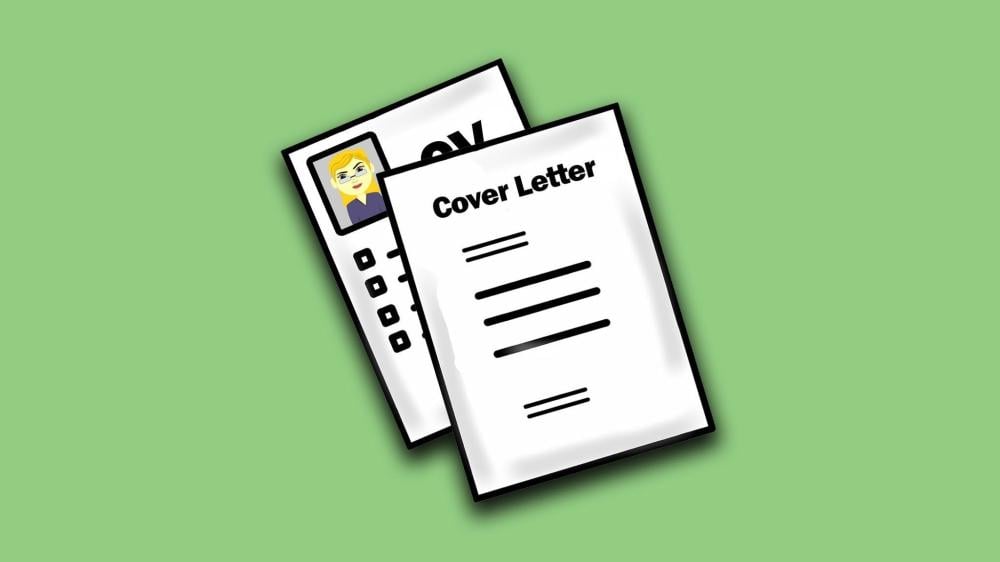
As we enter 2024, the career landscape continues to evolve, requiring clearer and more efficient communication skills from job seekers. Among the essential tools in an application toolkit, a cover letter occupies an important place, serving as a personal introduction and summary presentation of an individual's qualifications. However, there is one question that constantly bothers newcomers and seasoned professionals: What is the ideal length for a covering letter this year? Find out the ideal length for a job application letter with Empower.
The importance of writing a cover letter for a job
Writing a cover letter is a fundamental aspect of the job application process, often serving as the first point of interaction between a candidate and a potential employer. A well-crafted covering letter can significantly influence the outcome of a job application by complementing the resume, providing a narrative, and showcasing the applicant's personality, motivation, and attention to detail.
1. Personal Introduction and First Impression
A cover letter for a job application is more than just a formality; it's an applicant's opportunity to make a compelling first impression. Unlike a resume, which lists achievements and skills in a structured format, a covering letter allows the candidate to address the employer directly. This personal touch helps to humanize the job application process, allowing the candidate to articulate why they are the ideal fit for the role and how their goals align with those of the company.
2. Showcasing Customization and Research
When writing a cover letter, customization is key. A tailored covering letter demonstrates that the candidate has taken the time to research the company and understand its challenges and market position. By referring specifically to the company’s needs and detailing how one’s skills can address those needs, the applicant shows a proactive and thoughtful approach. This level of personalization can set a candidate apart from others who might simply use a generic cover letter for a job application.
3. Elaborating Beyond the Resume
A covering letter allows candidates to go beyond the bullet points of their resumes. It provides space to explain in detail how their experiences are relevant to the job. For instance, a candidate can discuss specific projects or roles in depth and reflect on the skills and knowledge they gained. This helps the employer see the practical application of the candidate's skills and their potential impact on the company.
4. Demonstrating Communication Skills
Effective communication is a key skill in nearly every field, and writing a cover letter offers a prime opportunity to showcase these skills. A clear, concise, and well-structured covering letter reflects an applicant's ability to organize their thoughts and present information in a compelling way. This is particularly important for positions that require strong written communication skills.
5. Addressing Gaps or Issues
Sometimes a resume may contain gaps or other potential red flags for an employer. A covering letter provides a space to straightforwardly address these issues. Whether it’s explaining a gap in employment, a career change, or any other unusual circumstances, being upfront in a cover letter can help mitigate concerns before they arise during the review process.
6. Increasing Visibility
In an era where many applications are sorted by Applicant Tracking Systems (ATS), incorporating relevant keywords such as cover letter for a job application and writing a cover letter into the text can help ensure that a resume is seen by human eyes. Strategic use of these keywords can boost the applicant’s visibility and increase the likelihood of the covering letter and resume being reviewed by a hiring manager.
What is the appropriate length for a cover letter for a job?
Determining the perfect length for a covering letter in 2024 involves striking a balance between providing enough information to make a compelling case for your candidacy and keeping the content concise enough to maintain the reader's attention. With the ubiquity of digital communication, the attention spans of readers, including recruiters and hiring managers, have become shorter. Therefore, the length of a cover letter for a job.
1. Optimal Length
The consensus among career experts is that a cover letter should be no longer than one page. This typically translates to about 250 to 400 words. Within this range, you have enough space to introduce yourself, highlight relevant experiences, demonstrate your knowledge of the company, and express your enthusiasm for the position. Staying within this word limit ensures that you provide enough information to engage the reader without overwhelming them with details that might be better suited for an interview.
2. Introduction: 50-70 Words
Start with a concise introduction that includes your purpose for writing the cover letter. Mention the job title you are applying for and how you learned about the opportunity. This segment should be engaging and aimed at capturing the reader's interest.
3. Body: 150-250 Words
The body of your cover letter for job application is where you delve into the specifics of why you are a suitable candidate. Break this section into one or two short paragraphs. Use this space to connect your past achievements with the job requirements listed in the job posting. Employ relevant keywords and phrases like writing a cover letter to align with the terms that might be picked up by Applicant Tracking Systems (ATS). This section should also reflect your knowledge about the company, thereby showing that your application is well-researched and personalized.
4. Conclusion: 50-100 Words
Conclude your covering letter by reiterating your interest in the position and the value you would bring to the company. Politely express your desire for a personal interview to discuss your application in detail. Thank the reader for their time and consideration. This closing part should be forward-looking and encourage the reader to move forward with your candidacy.
5. Professional Tone and Style
While focusing on the length, maintain a professional tone throughout the document. Writing a cover letter isn't just about filling space with words but about crafting a narrative that portrays your professional journey and aspirations. Each sentence should add value and push the narrative forward.
6. Customization
Each cover letter for a job should be uniquely tailored to the job and company you are applying to. This doesn’t necessarily impact the length directly but emphasizes the importance of content quality over quantity. Customized content that speaks directly to the job description and company culture will likely hold the reader's attention more effectively than a generic, lengthy cover letter.

